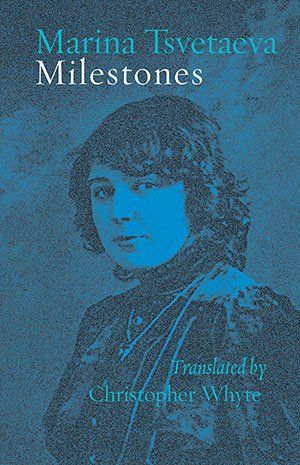Translations from Russian
Anna Akhmatova In Love and Revolution — Selected Poems
Translated from Russian by Stephen Capus
Published 2025. Paperback, 110pp, 9 x 6 ins, £12.95 / $20
ISBN 9781848619685. Poetry Book Society Translation Choice
Anna Akhmatova was born near Odesa, Ukraine, in 1889, as Anna Gorenko. She attended school in Tsarskoe Selo, near St. Petersburg, and lived most of her life in that city with which so much of her poetry is intimately connected. She frequented the Tower, the famous literary salon of the symbolist poet Vyacheslav Ivanov, and in 1910 married fellow poet Nikolay Gumilev. The couple divorced in 1918, three years before Gumilev was executed by the Bolsheviks for counter-revolutionary activities.
Akhmatova achieved fame with her first collection of poems, Evening, published in 1912, and her subsequent collections, Rosary and White Flock consolidated her reputation as one of Russia’s leading poets during the period preceding the October Revolution. After 1917 she took the decision to remain in Russia, rather than join those of her fellow writers who were opting to go into exile in the West. Between the publication of the second edition of Anno Domini in 1923 and the death of Stalin in 1953—with a brief reprieve during the War—she found herself subject to censorship, and in 1946 she was expelled from the Soviet Writers’ Union in the wake of the notorious Zhdanov speech, in which she was described as a ‘cross between a nun and a whore’. Nonetheless, although she faced much personal hardship and a protracted exclusion from publication as a consequence of her decision to remain in Russia, she was also able to create Requiem, her great affirmation of solidarity with the victims of the Stalinist purges. Stephen Capus's formal translations offer a new way of approaching Akhmatova for Anglophone readers.

Anna Glazova Twice under the Sun
Translated from Russian by Anna Khasin. English only.
Published 2008. Paperback, 100pp, 8.5x5.5ins, £12.95 / $20
ISBN 9781905700929 [Download a sample PDF from this book here .]
Twice under the Sun presents a cross-section of Anna Glazova's work from the past seven years, spectacularly translated—with the author's assistance—by Anna Khasin. The book is Ms Glazova's first book-length publication in English.
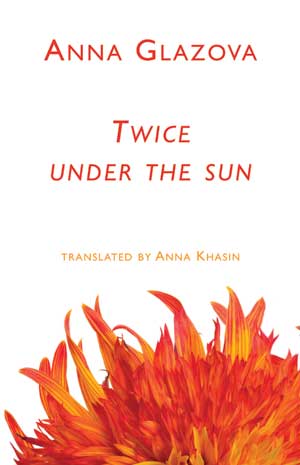
Osip Mandelstam Concert at a Railway Station: Selected Poems
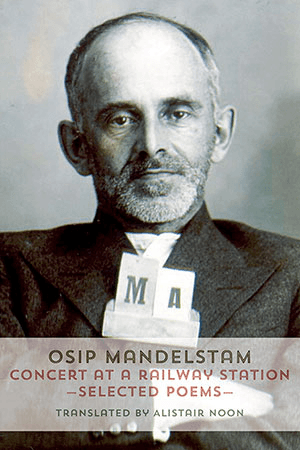
Osip Mandelstam The Voronezh Workbooks
Translated from Russian by Alistair Noon
Published 2022. Paperback, 178pp, 9 x 6ins, £14.95 / $23
ISBN 9781848618350 [Download a sample PDF from this book here .]
Osip Mandelstam spent three years in internal exile in the city of Voronezh, in south-western Russia, after someone in his circle of acquaintances had informed the Soviet authorities of his "Stalin Epigram" in 1934. The ninety-odd poems he wrote there are the pinnacle of his poetic achievement, bearing witness to Mandelstam's consistent independence of mind and concern for the freedom of thought. More covertly and controversially, however, they also bear the marks of Mandelstam's attempts to somehow reinstate himself back into Soviet society. In addition to all the poems that Russian editors have suggested constitute the sequence Mandelstam would have wished to see into print, this edition includes the main variants and exclusions preserved in manuscripts and the memory of Mandelstam's wife and executor, Nadezdha Mandelstam.
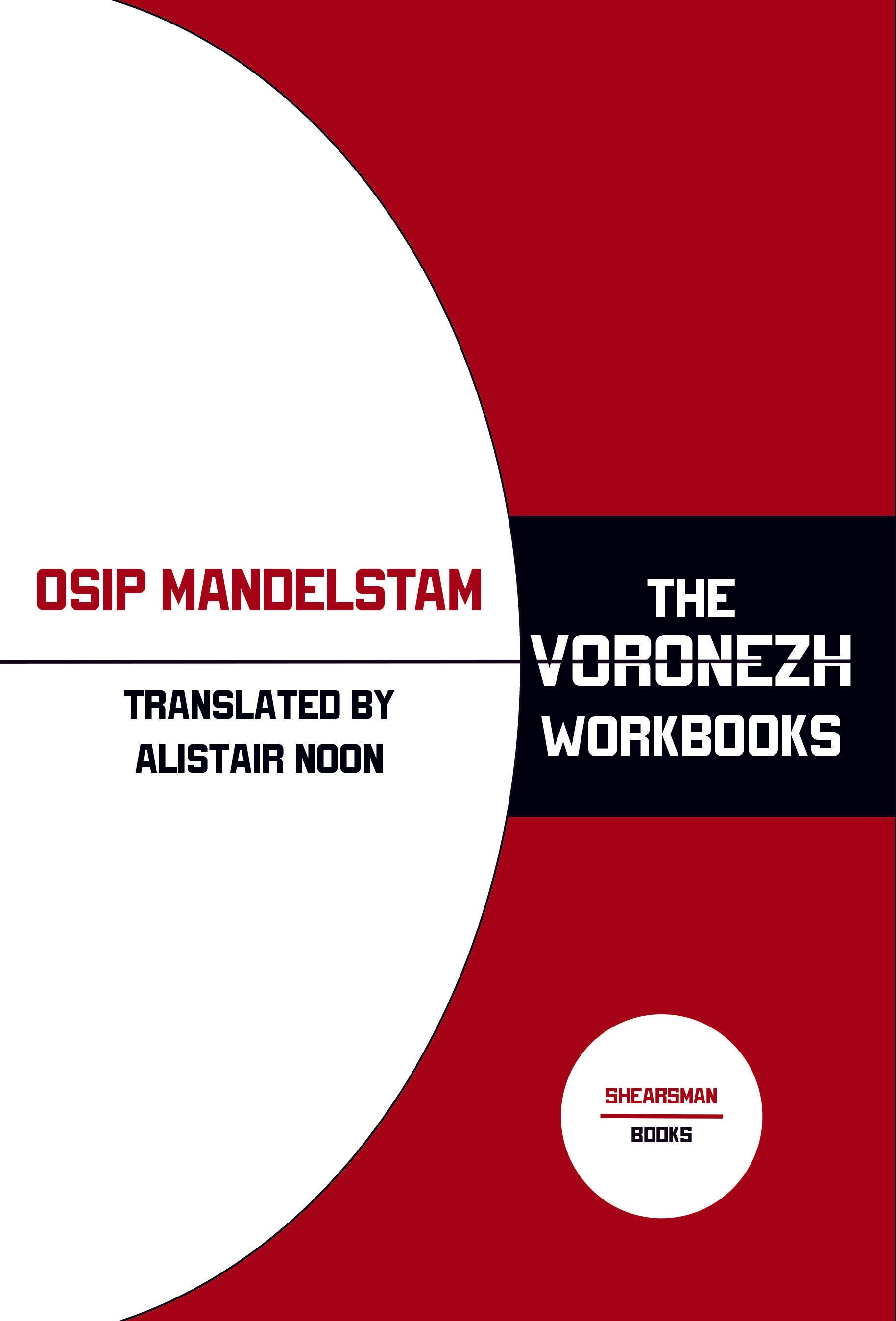
Osip Mandelstam Occasional and Joke Poems
Translated from Russian by Alistair Noon
Published 2022. Paperback, 106pp, 9 x 6ins, £12.95 / $20
ISBN 9781848618367 [Download a sample PDF from this book here .]
Parallel to his more famous poems about the buildings of St. Petersburg, the shores of the Black Sea, and the streets of Voronezh, Mandelstam wrote many brief, spontaneous poems about his friends, enemies and everyday occurrences over his entire writing life. Though his poetic, political and personal trajectory was to be a lonely one, he in fact had a convivial and gregarious personality, of which these poems are a product. This volume collects them in English for the first time, with an introduction and notes for context. It provides a fresh perspective on this poet whose sense of the past, the present and the future seems second to none.

Boris Poplavsky Flags
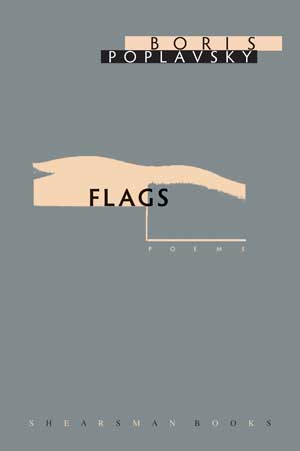
Marina Tsvetaeva Roland's Horn — Poems 1917–1924
Translated from Russian by Christopher Whyte
Published 2025. Paperback, 122pp, 8.5 x 5.5ins, £12.95 / $20
ISBN 9781848619760
The years between the twin revolutions of 1917 and Tsvetaeva’s departure at the end of April 1922, together with her daughter Alya, for Berlin and then Prague were the most productive of her entire career. In addition to a host of shorter, lyrical items, she wrote the long poems On a Red Steed and Tsar-Maiden, the latter a reworking and reimagining of folklore material in characteristically disconcerting and idiosyncratic style. Thanks to a chance meeting on the train which brought her back from Crimea to Moscow in November 1917, Tsvetaeva became acquainted with Pavel Antokolsky and, through him, with the members of the drama studio run by Yevgeny Vakhtangov, inspiring her to write no fewer than five dramas in verse in the space of two years. There, too, she met the actor Yury Zavadsky, and the diminutive actress with an English surname, Sonechka Holliday, to both of whom she dedicated extended cycles not fully assembled till after her death, as was the cycle of twenty-seven poems addressed to the painter Nikolay Nikolayevich Vysheslavtsvev (1890–1952), headed only by his initials.
The contrast between this outpouring of verse – an estimated 735 poems just for the period covered by this volume – and the background circumstances of inconceivable hardship, could hardly be more striking.

Marina Tsvetaeva The Scale By Which You Measure Me — Poems 1913–1917
Translated from Russian by Christopher Whyte
Published 2024. Paperback, 110pp, 9 x 6ins, £12.95 / $20
ISBN 9781848619333 [Download a sample PDF from this book here.]
From 1912 to 1920 Marina Tsvetaeva wrote copiously but published no books. Later she would claim that at least three major collections had fallen by the wayside in those years. The poems translated here offer readers the flavour of those vanished books, covering the period roughly from her daughter Alya’s first birthday to the Tsar’s abdication in March 1917 and the summer which followed. They reflect involvements with the poet Sonya Parnók and with a married economist of Polish origin, Nikodim Plutser-Sarnya. But there are also evocations of the Middle East, tributes to the Jews and to her sister Asya, plus a cycle in which Don Juan accosts Carmen and is buried in a grave amidst the Russian snow. Generally appearing in English for the very first time, they include several of the most accomplished and unforgettable poems Tsvetaeva was ever to write.
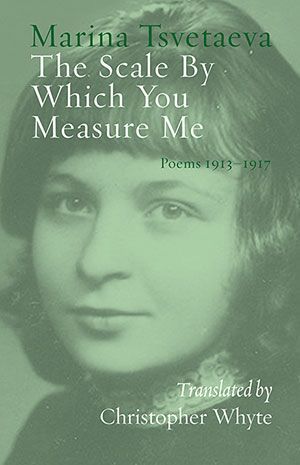
Marina Tsvetaeva Head on a Gleaming Plate — Poems 1917–1918
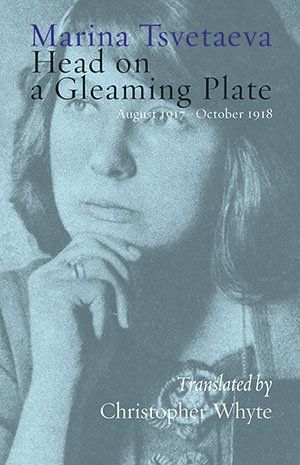
Marina Tsvetaeva Poem of the End: 6 Narrative Poems
This bilingual collection contains six of Tsvetaeva’s acclaimed narrative poems. She always regarded the narrative poem as her true challenge, and she created powerful and intensely original works in this genre. They can be seen as markers of various stages in her poetic development, ranging from the early, folk-accented ‘On a Red Steed’ to the lyrical-confessional ‘Poem of the Mountain’ and ‘Poem of the End’ to the more metaphysical later poems, ‘An Attempt at a Room’, a beautiful requiem for Rilke, ‘New Year’s Greetings’, and ‘Poem of the Air’, a stirring celebration of Lindbergh’s transatlantic flight and the quest for the soul’s freedom.
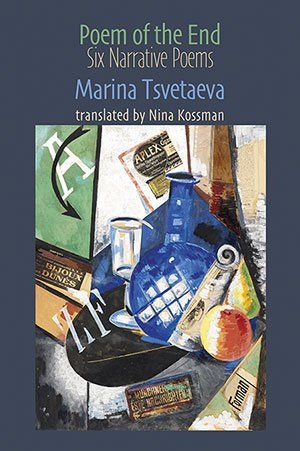
Marina Tsvetaeva Youthful Verses
Translated from Russian by Christopher Whyte. English only.
Published 2020. Paperback, 114pp, 9 x 6ins, £12.95 / $20
ISBN 9781848617315 [Download a sample PDF from this book here .]
The poems in Youthful Verses cover the years between 1913 and 1915, a period of unparalleled freedom in Marina Tsvetaeva’s life. Recently married and with a baby daughter, she chronicles in a sequence of astonishing honesty and frankness her love for a slightly older woman poet. Despite a disturbing undercurrent of self-denigration, these poems are characterised throughout by deft humour, a pervasive sense of mischief, and a high degree of formal perfection.
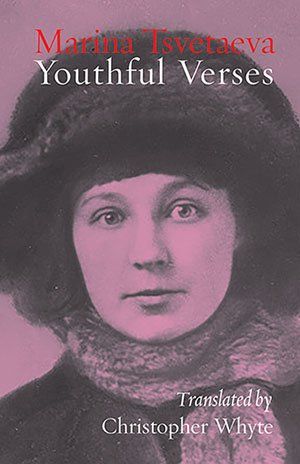
Marina Tsvetaeva After Russia (The Second Notebook)
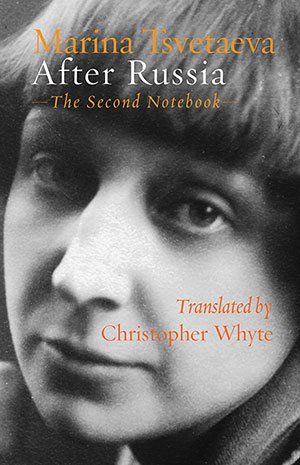
Marina Tsvetaeva After Russia (The First Notebook)
ISBN 9781848615496 [Download a sample PDF from this book here.]
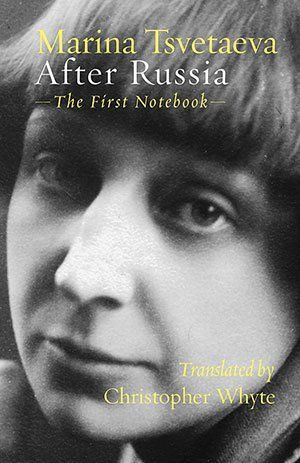
Marina Tsvetaeva Milestones
